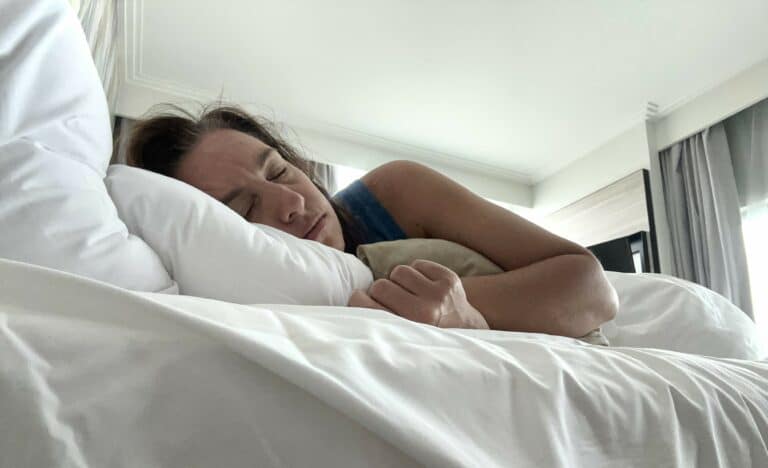What Parents Need to Know about Youth Concussions
If you are a parent of an athlete, it’s critical that you know the signs, symptoms, and recovery strategies for youth concussion. But before you think, “this isn’t for me,” consider that concussions don’t only occur on the football field, but are prevalent in soccer, basketball, cheerleading, and even on the playground.
A concussion is caused by a trauma or jolt to the head. This blow can be from a ball, another piece of equipment, another child, the dashboard of a car, or even hitting the ground. The result is physical damage to, and chemical imbalance in, the brain.
In the sports setting, an athletic trainer should evaluate any head injury and make appropriate recommendations for your next steps. At home or the playground, a call to the pediatrician is best to ensure further treatment isn’t necessary. But once a concussion diagnosis is made (or even suspected) we don’t have to feel helpless in healing. We can diminish symptoms and facilitate recovery at home.

A concussion is more than a headache. Some other symptoms we often seen with a youth concussion:
- Dizziness or nausea
- Balance problems
- Confusion
- Blurry or double vision
- Changes in short term memory
- Increased difficulty with focus or concentration
- Irritability or mood changes
- Sensitivity to light or noise
If a concussion is suspected, don’t wait for someone else to make a decision about your child’s ability to play. If you are present, remove your child from the athletic activity immediately and seek appropriate medical attention. This may sound extreme for a little bump to the head, but your child’s developing brain is more important than any sports game. Remember – sports should be fun!
The big issue here is ruling out a more serious injury, such as bleeding in the head or bruising of the brain. In addition, the better medical attention they receive, the more likely they will be able to recover and quickly return to playing. The following tips are not meant to be medical advice, but some tools to add to your tool belt of parenting if ever met with this challenge.

As a parent there are a few things you can do to get your child safely and quickly back to enjoying friends, school, and extracurricular activities.
Here are 5 tips to Optimize Concussion Recovery:
- Brain Rest – A period of rest allows the brain to heal. This includes limiting physical activity that requires a high level of coordination and lowering the mental load. This may mean a few missed days of school, but this is a far better option than a child struggling for months with their academics because their brain didn’t heal properly.
- Rest the Body – The brain heals and recovers most when we are sleeping. Be sure your child gets enough rest at night and even a nap during the day for awhile. Support sleep quality, not just sleep quantity. Short periods of guided meditation or deep breathing exercises can allow the body and mind to rest as well. You can find free relaxation audios for even small children online.
- Reduce Eye Strain – This can improve headaches, dizziness, nausea, and brain recovery. Strain can be reduced by dimming lights, wearing sunglasses, and avoiding computer screens and handheld devices. Yes, that means that vegging out with the iPad or cell phone time should be drastically cut, if not eliminated. I will say that watching a tv from a distance is the be option if screentime is necessary.
- Nourish the brain – Nutrition matters when it comes to brain healing. High sugar foods will increase inflammation, which antioxidants will help the body heal. The most important nutrient for brain healing is omega 3 fatty acids. These can be found in high amounts in fish and pasture raised eggs, as well as in plant sources such as flax seed, walnuts, and chia seeds.
- Cautious Exertion – Maintaining muscle strength and physical endurance for athletes is important, but progress slowly and safely. We want to avoid activities that make symptoms worse or risk another head trauma. Many athletes will experience exercise intolerance post concussion, so a gradual, monitored return to play is critical.

For some children, concussion symptoms will resolve in a about a week. However, an estimated 30% will experience persistent symptoms for a month or more without appropriate intervention. A specialist sports physical therapist can address lingering issues such as headache, neck pain, dizziness, or changes in agility or coordination. In addition, they will most appropriately be able to “dose” return to activity and play in a safe and strategic manner that will allow an active recovery. In addition, as doctoral trained therapists, we can identify “red flags” that will require referral to orthopedists, neurologists, child psychologists, or speech pathologists.
The take home point here? Take concussions seriously! However, don’t live in fear. Know that there are healthcare professionals in the community here to answer your questions and help you optimize the recovery process. The last thing we want is for children to be inactive due to fear or history of a concussion. Let’s keep our children moving safely so they can enjoy the benefits of exercise and sports for a lifetime.








